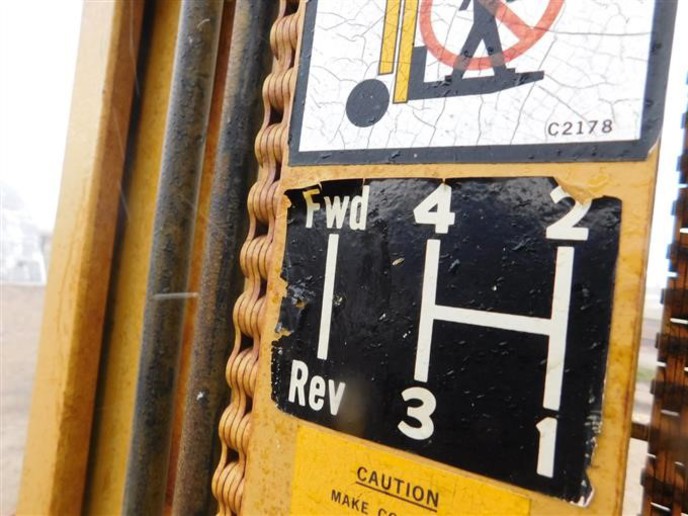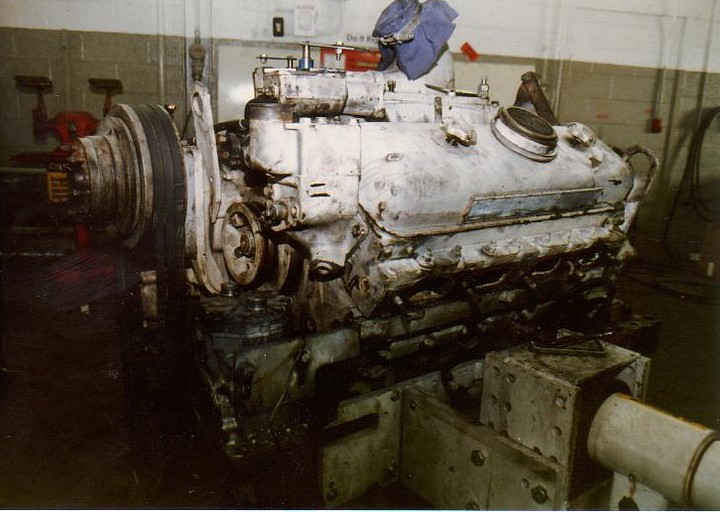Folks, there are two camps here. Those, like me, that love 'em, and those that hate 'em, so this should create some activity.
I'll premise this post by stating that I'm prejudiced because I grew up with 2 cycle Detroits. My Father was the GM Truck and Coach field engineer for all of KY, TN and parts of WV, OH, and IN for his 30 year career with GM from 1939 until he retired in 1969. He was with GM in the South Pacific in WWII and bounced around in the SE for a few years after the war before he could get the territory that he wanted near Cincinnati. He knew more about Detroit Diesels and Allison transmissions than anyone else that I've ever known.
Detroits were premium engines. They were not cheap. As a result, they were not common in farm tractors, but some were used in the boom times of the 1950s and 1960s for various reasons.
We all know that Detroits were 2 cycle HP engines. They were not torque engines. They were kind of like your 2 cycle Lawn Boy engine or your Yamaha motorcycle engine. Great HP in a small, lightweight, package. There were no Briggs lawn mower engines around in the 1950s or 1960s that could make the HP of a Lawn Boy engine for anywhere near the size, weight or cost.
Because Detroits were not luggers, they were marginable for many farm tractor applications. They were not well suited for heavy tillage unless equipped with a torque converter like the Oliver Lugomatics. Torque converters, of course, added even more cost above and beyond the cost of the expensive Detroit engine. They also introduced inefficiency. There were other less expensive alternatives.
That said, NOTHING made the HP that the Detroits made in a similar size and weight package.
Detroits were designed to last just about forever. Given recommended maintenance and without abuse, nothing lasted longer.
OK, folks, I've stated my case.
Bring it.
Dean
Detroit Diesel
I'll premise this post by stating that I'm prejudiced because I grew up with 2 cycle Detroits. My Father was the GM Truck and Coach field engineer for all of KY, TN and parts of WV, OH, and IN for his 30 year career with GM from 1939 until he retired in 1969. He was with GM in the South Pacific in WWII and bounced around in the SE for a few years after the war before he could get the territory that he wanted near Cincinnati. He knew more about Detroit Diesels and Allison transmissions than anyone else that I've ever known.
Detroits were premium engines. They were not cheap. As a result, they were not common in farm tractors, but some were used in the boom times of the 1950s and 1960s for various reasons.
We all know that Detroits were 2 cycle HP engines. They were not torque engines. They were kind of like your 2 cycle Lawn Boy engine or your Yamaha motorcycle engine. Great HP in a small, lightweight, package. There were no Briggs lawn mower engines around in the 1950s or 1960s that could make the HP of a Lawn Boy engine for anywhere near the size, weight or cost.
Because Detroits were not luggers, they were marginable for many farm tractor applications. They were not well suited for heavy tillage unless equipped with a torque converter like the Oliver Lugomatics. Torque converters, of course, added even more cost above and beyond the cost of the expensive Detroit engine. They also introduced inefficiency. There were other less expensive alternatives.
That said, NOTHING made the HP that the Detroits made in a similar size and weight package.
Detroits were designed to last just about forever. Given recommended maintenance and without abuse, nothing lasted longer.
OK, folks, I've stated my case.
Bring it.
Dean
Detroit Diesel




